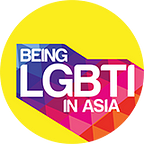UNDP partners with Royal Thai Government and ‘Being LGBTI in Asia’ to launch new Gender Equality Act
3 Sep 2015
BANGKOK, Thailand, 3 September 2015 — The first legal instrument in Thailand that provides specific protection for lesbian, gay, bisexual, transgender and intersex (LGBTI) people has been formally launched at an event jointly convened by the Ministry of Social Development and Human Security, the ‘Being LGBTI in Asia’ initiative and Rainbow Sky Association of Thailand (RSAT).
The legal instrument, officially titled the ‘Gender Equality Act B.E. 2558’, prevents discrimination on the basis of gender and is inclusive of LGBTI people. The Act was launched at a three-day workshop which focused on practical policy implications of the new law’s implementation in Thailand. The Act was announced in the Royal Gazette on 13 March 2015 and will come into force on 9 September 2015.
“Preventing discrimination against LGBTI people in Thailand and creating acceptance will require a well-coordinated, multi-stakeholder effort,” said United Nations Development Programme (UNDP) Thailand, Deputy resident representative, Martin Hart-Hansen, in his opening remarks. “UNDP stands ready to support the Royal Thai Government and civil society partners to move towards better and stronger protection of the rights of LGBTI people.”
The workshop was supported by ‘Being LGBTI in Asia’, a regional initiative by UNDP, the Embassy of Sweden in Bangkok and the U.S. Agency for International Development. Some 400 participants attended, including representatives from civil society, government ministries, legal experts and media. Throughout the event, participants reflected on the new law and the challenges faced by LGBTI people in Thailand. A forthcoming research report undertaken by Mahidol University and RSAT, which sheds light on the stigma and discrimination faced by lesbian and transgender women in Thailand, was presented on the second day to further inform discussions. Director-General of the Department of Family Affairs and Family Development, Somchai Charoenamnuaysuk, outlined how the new law bars government agencies, private organizations, or individuals from formulating or establishing any kind of policies, rules, regulations, measures, projects or operating procedures that discriminate based on gender identity or sexual orientation.
“Cooperation from all sectors is key in moving forward with the enforcement of this Act in order to create an equal and just society,” said Somchai Charoenamnuaysuk. “The public plays an important role in keeping a watchful eye on cases of discrimination, providing support to LGBTI people, as well as ensuring compliance with the rules, regulations and measures.”
The three-day workshop culminated in the creation of a National Advocacy Framework by LGBTI civil society and central government participants. The Framework provides a blueprint for action that identifies key needs, and priority areas that civil society organizations and implementers of the law can follow to ensure the Gender Equality Act is implemented as widely, and as effectively as possible. The new law has the potential to positively influence the situation of LGBTI people in Thailand.
“I would like to see this law lead to positive outcomes for people of all genders, including LGBTI people,” said Project Manager at Bangkok Rainbow, Art Pongtasorn. “The first step to ensure this is to raise awareness and accessibility of this new law among Thai society while also raising awareness of discrimination against LGBTI people.”
The Department of Women’s Affairs and Family Development, under the Ministry of Social Development and Human Security, will work together with a number of government departments, and private and civil society organizations to harmonize their efforts to ensure that people who are discriminated against because of their gender receive protection. As part of the launch, the Department of Women’s Affairs and Family Development, the Rainbow Sky Association of Thailand, the Lawyers Council of Thailand, and the Association of Women Lawyers of Thailand have signed a memorandum of understanding to promote cooperation in enforcing the new Gender Equality Act.
Contact Information
Ms. Angelique Reid, Communication and Partnership Officer
UNDP Thailand
Email: angelique.reid@undp.org
Mobile: +66 (0)94 965 2272
Originally published at www.th.undp.org on September 2, 2015.
